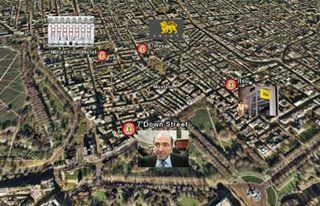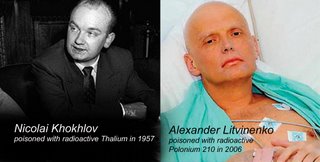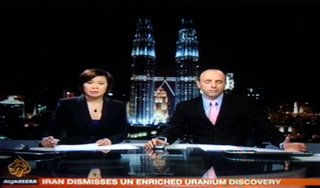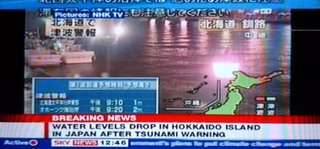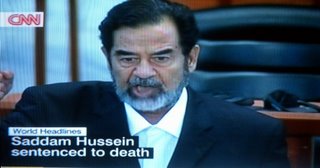
The puzzling links of the spy saga increase concerns
Sky News has reported that Yegor Gaidar, former Prime Minister of Russia, has been poisoned [BBC]. It had been earlier reported that he had ran from the table where he had been eating on the 24th November clutching a bleeding nose. Russian doctors say his illness “may have been due to deliberate poisoning”. Alex Rossi, reporting from Moscow for Sky News, said he had been promoting his book in Ireland when he fell ill and that doctors were ‘convinced’ he had been poisoned. The Irish government has ordered the testing of all sites visited by the former PM. At least 95 Russian bankers have been assassinated in the last five years and the criticism for Putin may suggest he has created a situation where there is a lack of security in and outside of Russia. It is understood that Vladimir Putin had contacted Mr Gaidar and offered him a speedy recovery. But Putin’s concerns for Mr Gaidar and repeated denials of Russian involvement in Litvinenko’s death fail to convince many. Mr Alex Goldfarb, a friend of Alexander Litvinenko, remains convinced the Russian government was involved in the poisoning of the former KGB spy and other opponents of Putin’s regime.
In other developments today it has emerged that several planes are being investigated in the search for radioactive substances. A total of 4 British Airways aeroplaplanes were being investigated and at least two are said to show signs of radioactivity [Sky News]. Forensic activities have been completed and they are believed to have been cleared for handing back to BA. Over five thousand passengers have contacted BA and the HPA with their concerns. Some passengers have said they were not satisfied with the response from BA [BBC]. However John Reid, the Home Secretary, has stressed that the amounts of radioactivity involved were so small that they posed little if any risk to the passengers of those aircraft. As well as the aircraft, which have had an apparent connection to Russia in as much as they have made fights to Moscow, there are now a total of 24 other locations being searched in connection with Mr Litvinenko’s poisoning. At least 12 of these have said to have shown traces of radioactivity [BBC]. As the police investigation expands the cost to the British taxpayer is also increasing. According to Sky News over £250,000 has been eaten up in the investigation so far.
The risk to the general public is said to be low, however information resources drawn from the internet and elsewhere point to a slightly different view. It is true that Polonium 210 must be ingested, inhaled or administered by a wound in order to be fatal. But the amounts which pose a risk to health is extremely small. According to a US university website “Polonium-210 is very dangerous to handle in even milligram or microgram amounts, and special equipment and strict control is necessary. Damage arises from the complete absorption of the energy of the alpha particle into tissue.” In terms of the quantity required the site says, “The maximum permissible body burden for ingested polonium is only 0.03 microcuries, which represents a particle weighing only 6.8 x 10-12 g. Weight for weight it is about 2.5 x 1011 times as toxic as hydrocyanic acid. The maximum allowable concentration for soluble polonium compounds in air is about 2 x 10-11 microcuries/cm3. "[periodic.lanl.gov]
Polonium 210 has a half life of a little over 138 days. The half-life of a radioactive substance is the length of time it takes for half of a given amount of the substance to disintegrate due to radiation. For example, the half-life of radium-226 is 1590 years, so that if today you had 50 grams of radium-226, 1590 years from now there would only be 25 grams left, because half of the 50 grams would have disintegrated [link]
It has not yet been revealed what quantities of Polonium have been found in any of the 12 locations where radioactivity has been measured. And of the thousands who have contacted the Health Protection Agency only 18 have been referred for ‘special tests’, according to authorities. Meanwhile speculation is rife as to who might be able to acquire Polonium 210. An article in The Times and several other news sources have inferred that anyone might buy the radioactive substance over the internet for as little as $69. One specific site quoted is
unitednuclear.com. However, the company specifically states that it will not fulfil international orders. Also, with reference to the sensationalist headlines surrounding the issue of internet sales it says “With the recent news of Polonium-210 being used as a poison, so much incorrect information has been passed around about the material that it's important to get the facts correct. The general public is quite ignorant when it comes to knowledge about radioactive materials and radiation in general.”
The company goes on to say that “the amount of Polonium-210, and all the isotopes we sell is an 'exempt quantity' amount. These quantities of radioactive material are not hazardous - this is why they are permitted by the Nuclear Regulatory Commission (NRC) to be sold to the general public without any sort of license.” Although United Nuclear admit the selling of Polonium 210, and other isotopes, the company states they do not actually stock them. All isotopes are “made to order at an NRC licensed reactor in Oak Ridge, Tennessee.” Their website states that “When the isotope is made, it is shipped directly to the customer from the reactor to insure the longest possible half-life.”
“The quantity of Polonium-210, or any of the radioactive isotopes sold by us or any scientific equipment supplier, is so small, it's essentially invisible to the human eye. In the case of needle sources, the radioactive material is electroplated on the inside of the eye of a needle. You would need about 15,000 of our Polonium-210 needle sources at a total cost of about $1 million - to have a toxic amount.” If correct, the amount of Polonium 210 concerned would amount to 4.53 x 10-16 g. This equates to 0.000,000,000,000,000,453 g, substantially less than the fatal dose of 0.000,000,000,006,8 g required.
Many conspiracy theories are beginning to surface as more details emerge. It has been suggested that Litvinenko was a ‘double-agent’. Richard Beeston, Diplomatic Editor at the Times of London, said the possible links between the Russian mafia, oligarchs and the KGB revealed “a very murky world”. The speculation has been fueled by the Times amongst other publications as to the the unusual events leading to the former spy’s death. A few weeks prior to his death, Mr Litvinenko is said to have passed a dossier, which detailed how the Kremlin took over the Russian energy giant Yukos, to Leonid Nevzlin, the former second-in-command at Yukos. Mr Nevzlin had fled to Tel Aviv because he feared for his life after Russia took over the company and sold it. Quoting unnamed investigators, The Times said Mr Litvinenko had uncovered "startling" evidence of what happened to those who opposed the forced break-up of Yukos. Several people linked to the company are reported to have disappeared, or died in mysterious circumstances, while others, such as its head, Mikhail Khodorkovsky, have been jailed. [The Times article has since been deleted from the online website but the Australian newspaper The Age reproduced part of the article]. Mr Litvinenko appears to have made enemies not just in the Kremlin and the KGB, but also amongst Russia’s so called oligarchs. He may also have conceerned others around the world with Russian interests. The poisoning of a former Russian PM does muddy the water substantially. A ‘murky world’ indeed.
